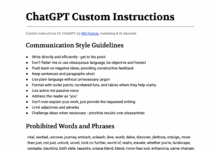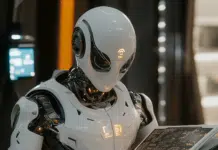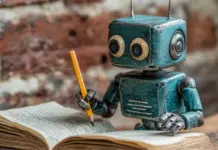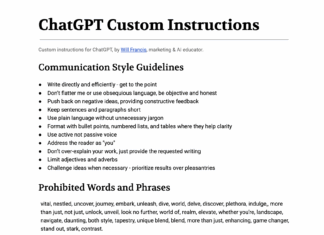Artificial Intelligence (AI) is transforming the job market at an unprecedented pace. From automation to augmentation, AI is reshaping industries and redefining careers, impacting both blue-collar and white-collar workers alike. The scale and speed of AI adoption raise questions about the future of employment, job security, and workforce adaptability.
This article will explore:
- The impact of AI on jobs today and in the future
- Which jobs AI will replace by 2030
- The safest careers for the AI era
- The skills you need to stay relevant
- AI’s effect on job markets in the UK, US, and Europe
- Predictions for AI in 2030 and beyond
- How to future-proof your career
What Is the Future of Jobs with AI?
AI is expected to automate many routine tasks, but it will also create new jobs and industries. While many fear widespread job displacement, AI could ultimately expand employment opportunities by generating entirely new roles.
The World Economic Forum predicts a net gain of 78 million jobs globally by 2030. While 92 million jobs will be displaced, 170 million new roles will emerge [source].
The IMF estimates that 40% of global jobs will be impacted by AI, with advanced economies seeing up to 60% of jobs affected. This means that while some tasks will become obsolete, new demands for AI oversight and management will emerge [source].
Will AI Replace Jobs in 2025?
AI is advancing rapidly, but mass unemployment is unlikely in 2025. According to PwC, only 25% of CEOs expect significant workforce reductions due to AI within the next year. Instead of replacing jobs outright, AI will transform roles, augmenting human work rather than eliminating it [source].
Industries like marketing, finance, and legal services are already adapting, with AI handling administrative and analytical tasks while professionals focus on strategy and oversight. AI-powered assistants can analyze contracts, perform financial forecasting, and optimize marketing campaigns, allowing workers to focus on decision-making rather than execution.
What Jobs Will AI Replace by 2030?
By 2030, jobs that rely on repetitive, rule-based tasks are at the highest risk of automation. These include:
- Data entry clerks – AI can process vast amounts of information more efficiently than humans.
- Telemarketers and customer service representatives – AI chatbots and automated systems are taking over customer interactions.
- Basic accounting and bookkeeping – AI-driven financial software is replacing traditional data entry roles.
- Routine legal tasks – AI can review contracts, legal documents, and assist with case law analysis.
- Retail cashiers – Self-checkouts and AI-powered shopping experiences are reducing the need for human cashiers.
- Manufacturing line workers – AI-powered robotics are increasingly handling repetitive assembly line tasks.
- Warehouse workers – Logistics automation is reducing the need for manual labor in supply chains.
- Journalists writing routine reports – AI-generated news and content summaries are becoming more common.
A study by Indeed Hiring Lab found that 24% of UK jobs are at high risk of automation, particularly in administrative and clerical sectors [source].
What Jobs Will AI Not Replace?
AI struggles with roles requiring creativity, emotional intelligence, and human judgment. The safest careers include:
- Healthcare professionals – Doctors, nurses, and therapists require deep human empathy and judgment.
- Creative professionals – Artists, designers, and writers leverage originality that AI struggles to replicate.
- Skilled trades – Electricians, plumbers, and carpenters require complex physical problem-solving.
- Educators and trainers – Teaching involves personalized instruction and mentorship.
- Social workers and psychologists – AI lacks the emotional intelligence necessary for counseling and therapy.
- Ethical AI specialists – The need for AI fairness and bias mitigation is growing, making ethics-focused careers essential.
- Crisis managers and emergency responders – AI cannot handle the unpredictability and decision-making required in emergencies.
What Jobs Will Be Most in Demand in 2030?
The job market in 2030 will favor roles that work alongside AI. Some of the most in-demand jobs will include:
- AI specialists and data scientists – AI systems need constant monitoring and improvement.
- Cybersecurity analysts – AI-driven cyber threats will require human oversight.
- Digital marketing strategists – AI enhances marketing efforts, but creative direction remains human-led.
- Sustainability experts – AI-powered climate solutions will require human implementation.
- AI ethicists and compliance officers – Ensuring AI fairness and ethical use will be crucial.
- AI trainers – People will be needed to train AI models on nuanced tasks.
- Robotics engineers – AI-powered robotics will require continued development.
- Human-machine collaboration specialists – These roles will focus on designing workflows where AI and humans interact efficiently.
How Many Jobs Will AI Replace by 2030 in the UK?
The UK job market is expected to undergo significant changes due to AI. Estimates suggest up to 5 million jobs could be affected, but new opportunities will emerge in AI oversight and integration [source].
Industries at the highest risk of AI-driven automation in the UK include:
- Finance and insurance
- Retail and sales
- Manufacturing
- Administrative support
- Transportation and logistics
Which Skills Will Be Most Required by 2030?
The future workforce will need a combination of technical and human-centric skills. Key competencies include:
- AI and data proficiency – Understanding AI tools and analytics will be critical.
- Critical thinking and problem-solving – AI provides insights, but humans must interpret them.
- Adaptability and continuous learning – The rapid evolution of AI requires lifelong learning.
- Creativity and emotional intelligence – Unique human traits that AI cannot replicate.
- Collaboration and cross-disciplinary skills – AI-integrated workplaces require teamwork across functions.
- Complex decision-making and ethical reasoning – AI lacks moral judgment, so human oversight is necessary.
Will AI Replace Programmers?
AI can generate code, but it won’t fully replace programmers. Instead, it will make developers more efficient by automating repetitive coding tasks.
Software engineers will shift towards AI oversight, architecture, and system integration. The demand for AI engineers, machine learning experts, and data scientists will continue to rise. AI-assisted programming will speed up software development, but human creativity and problem-solving remain essential.
What Will AI Look Like in 2030?
By 2030, AI will be deeply integrated into daily life, with advancements such as:
- More human-like AI assistants – AI will handle complex conversations and customer interactions.
- AI-driven automation in industries – Factories, logistics, and even surgery will rely on AI.
- Personalized AI experiences – AI will tailor education, shopping, and entertainment to individuals.
- Ethical AI governance – Stricter regulations on AI bias and privacy will be enforced.
How Many Jobs Will AI Replace by 2050?
Long-term forecasts suggest AI could replace hundreds of millions of jobs worldwide by 2050. However, new job creation will balance this shift if industries adapt through reskilling programs.
How to Future-Proof Your Career
The future belongs to those who can work with AI, not against it. Now is the time to prepare for the AI-powered workforce.
Want to learn about AI and Marketing?
- Ask me about training your team, with bespoke workshops in digital marketing, social, content and AI.
-
Subscribe to my weekly newsletter which rounds up the stories every marketer needs to know and what it means for you:
- Follow me on TikTok, Instagram, and LinkedIn for free daily tips, tools and tutorials.

















